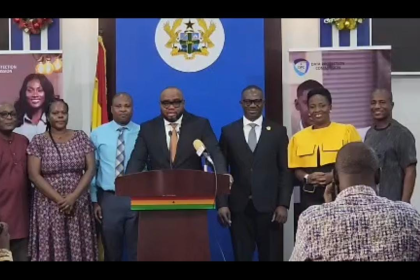The government has begun formal talks to assume Springfield Exploration and Production’s stake in the West Cape Three Points Block 2 (WCTP-2), a major offshore asset long considered central to Ghana’s hopes of reversing declining oil output.
In a statement issued in Accra, the Ministry of Energy and Green Transition said the state, acting through the Ghana National Petroleum Corporation (GNPC) and its upstream subsidiary GNPC Explorco, has started what it calls constructive engagements with Springfield for a state-led takeover of its interest in the block.
Officials say the process is meant to protect Ghana’s petroleum resources, accelerate development of the field and strengthen energy security at a time when national crude production continues to fall.
The ministry indicated that an independent technical consultant has been brought on to carry out a full assessment of the block, while a separate transactional advisor is conducting financial due diligence, verifying past expenditures and preparing an impartial valuation of Springfield’s interest. Government stressed that any eventual restructuring or acquisition will be guided by commercial prudence and the national interest, including Ghana’s local content policy.
WCTP-2 sits in the deepwater Tano/Cape Three Points basin. Springfield, a Ghanaian-owned operator, announced a major oil discovery there in 2019, reporting significant in-place reserves from the Afina-1 well. Despite that find, development has stalled for years, and successive governments have faced pressure to unlock the field’s potential.
The latest intervention comes as Ghana’s overall oil production continues to slide and the state seeks new ways to revive output. Energy officials say the block must be brought on stream to support national revenue mobilisation and sustain activity in the upstream sector. At the same time, the government insists that the process is not prejudging any investigations involving Springfield or its affiliates.
Details of the transaction remain unclear. The ministry has not specified whether the takeover will be achieved through a negotiated purchase of Springfield’s stake, a farm-in arrangement for a new operator, or a compulsory acquisition. The valuation of the interest, the source of funding for the takeover and the timeline for completion have not yet been disclosed. It is also not known whether Springfield will retain any role after the transition.
The move signals a more assertive approach to upstream stewardship, at a time when the government is seeking to shore up investor confidence while maximising value from existing petroleum assets. It also raises questions about the balance between state intervention and operator independence, especially in high-risk deepwater operations that require significant capital and technical capacity.
For now, officials say the goal is straightforward: safeguard the asset, remove obstacles to development and position Ghana to benefit from a block that has remained dormant for too long.
The coming weeks will be crucial as government negotiators, advisors and Springfield work through the terms of what could become one of the most consequential restructurings in Ghana’s recent oil and gas history.





